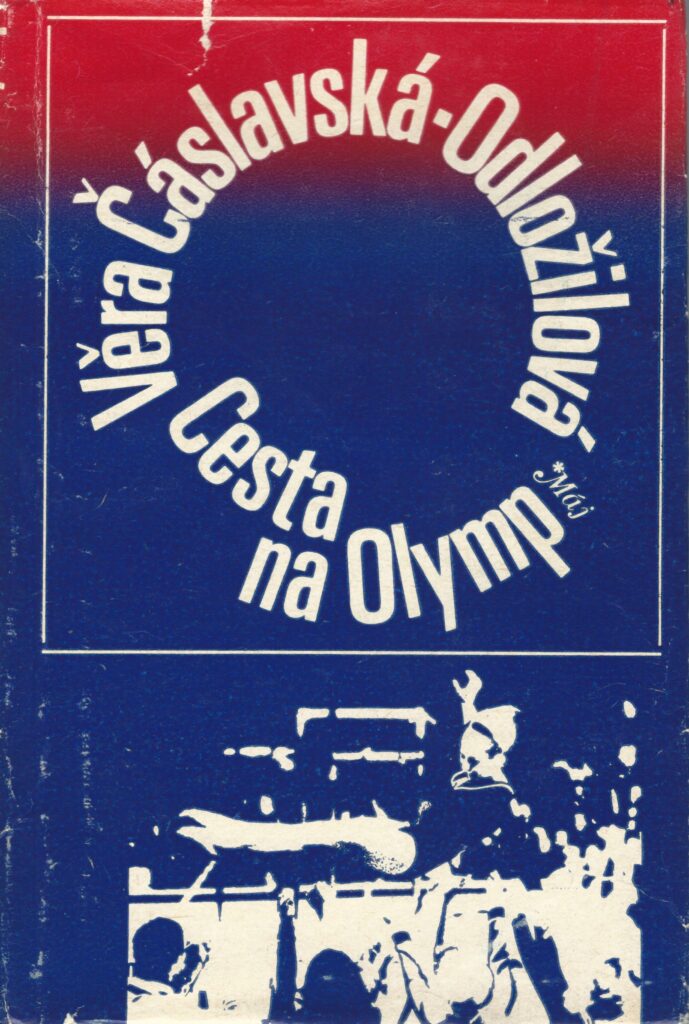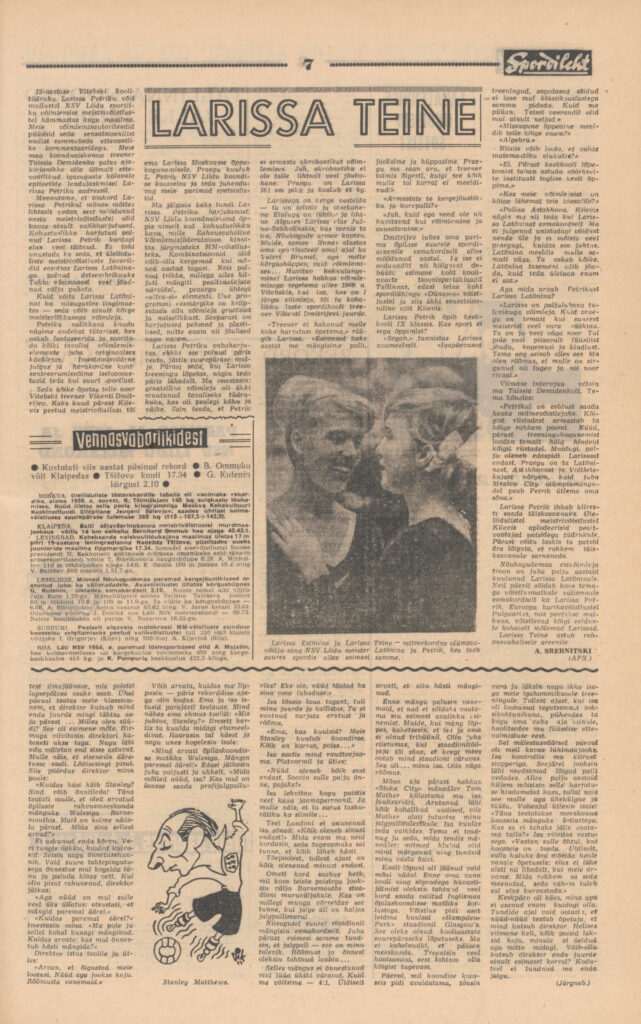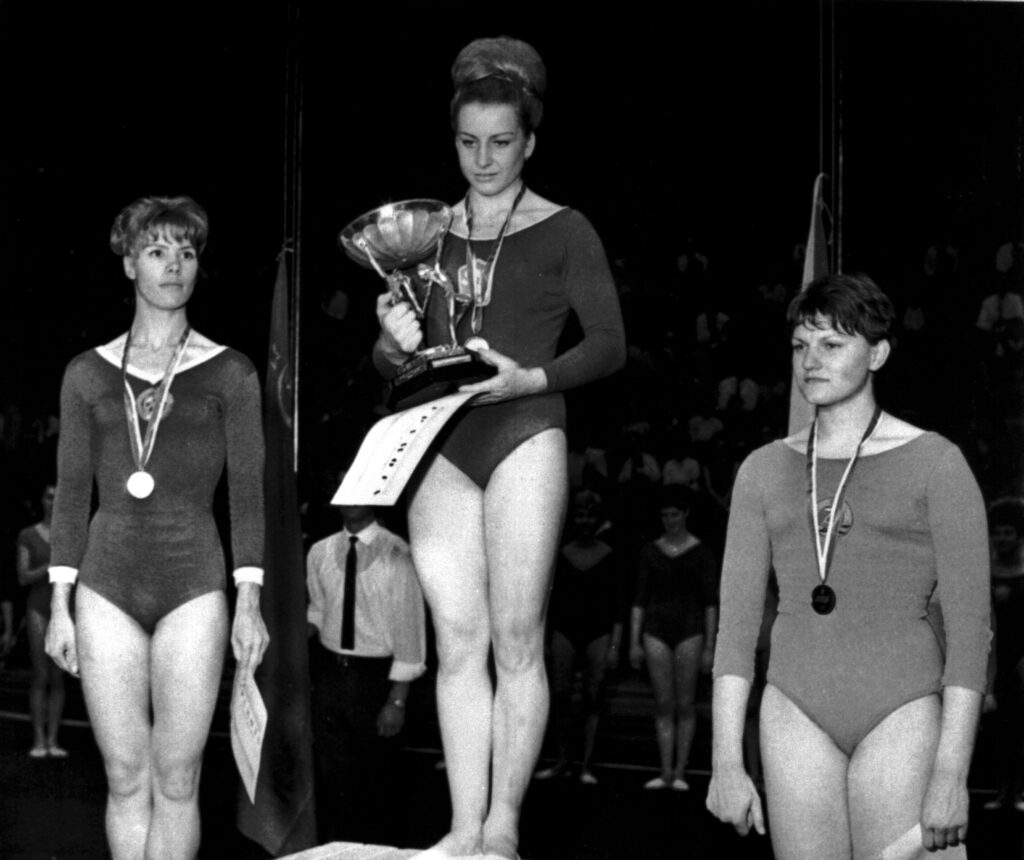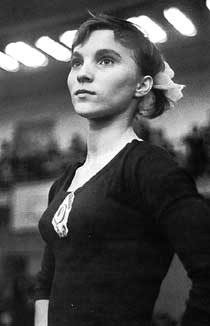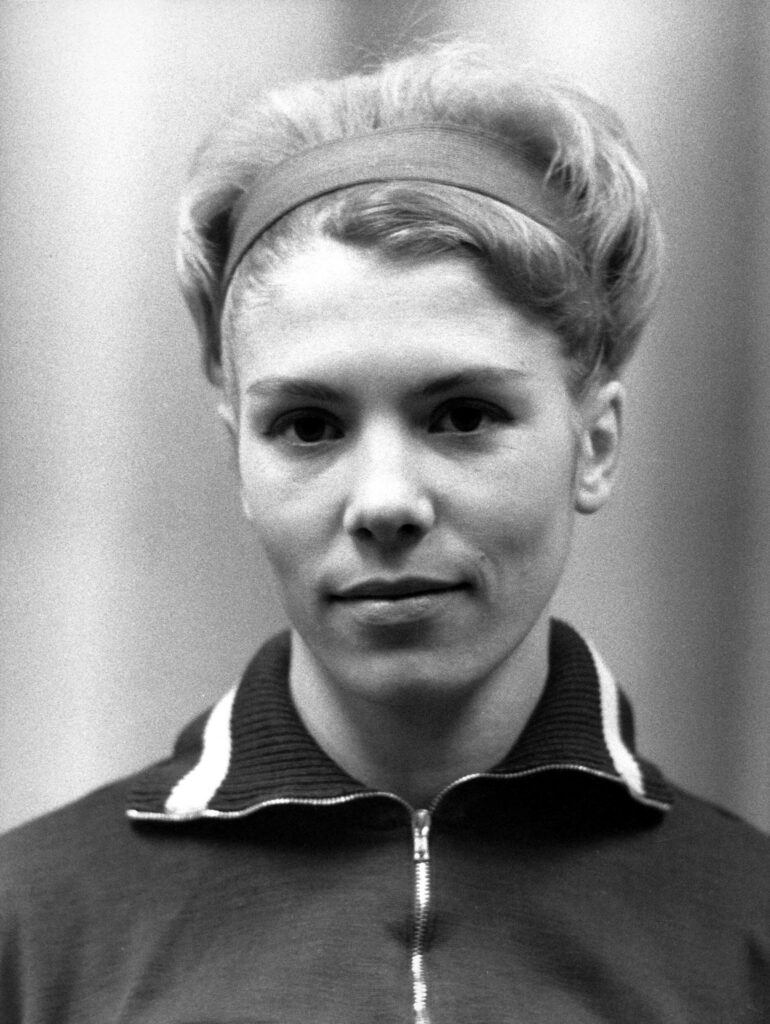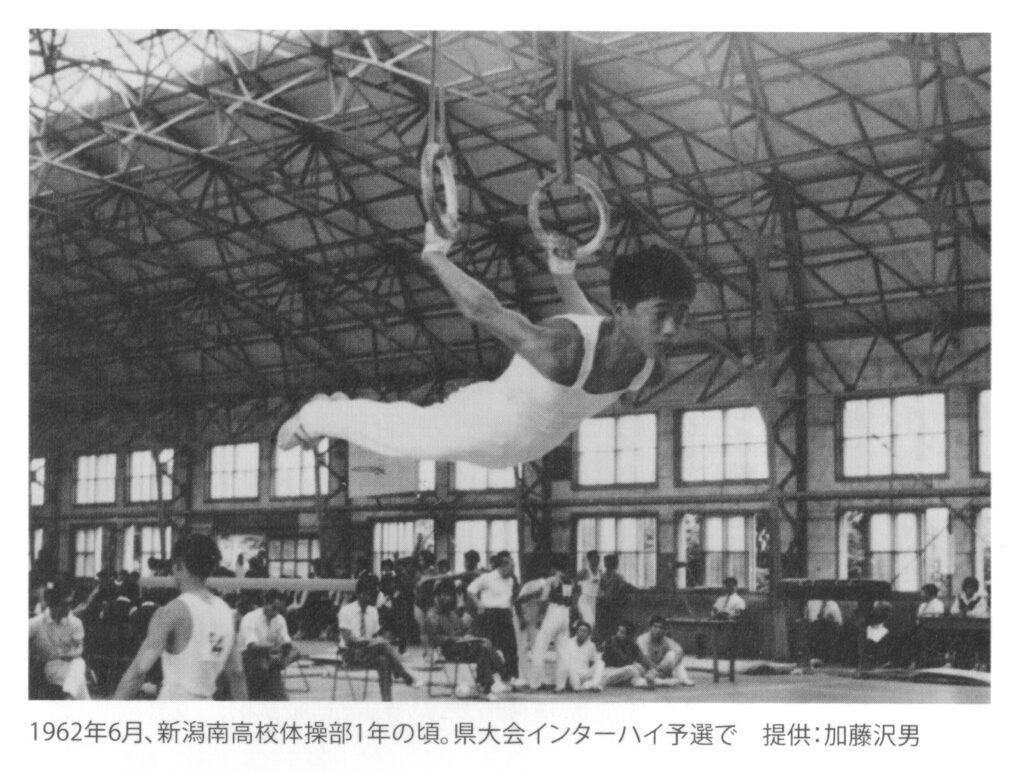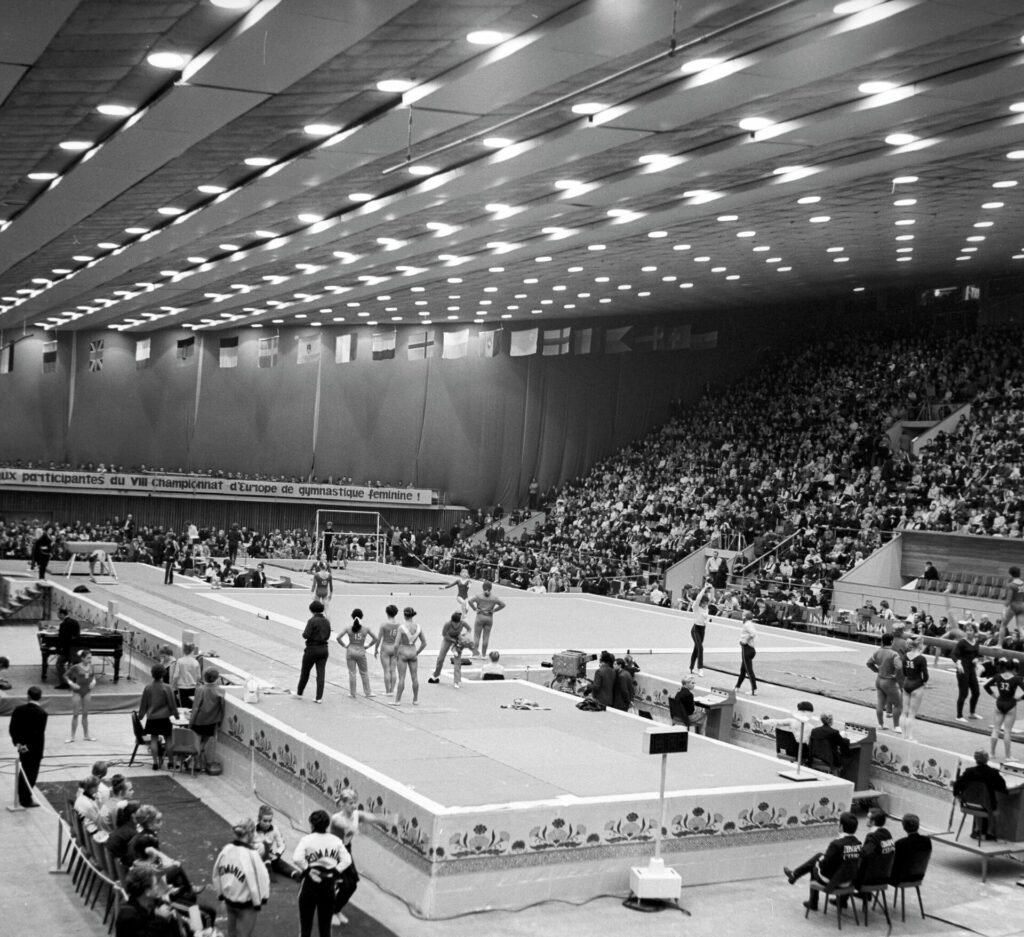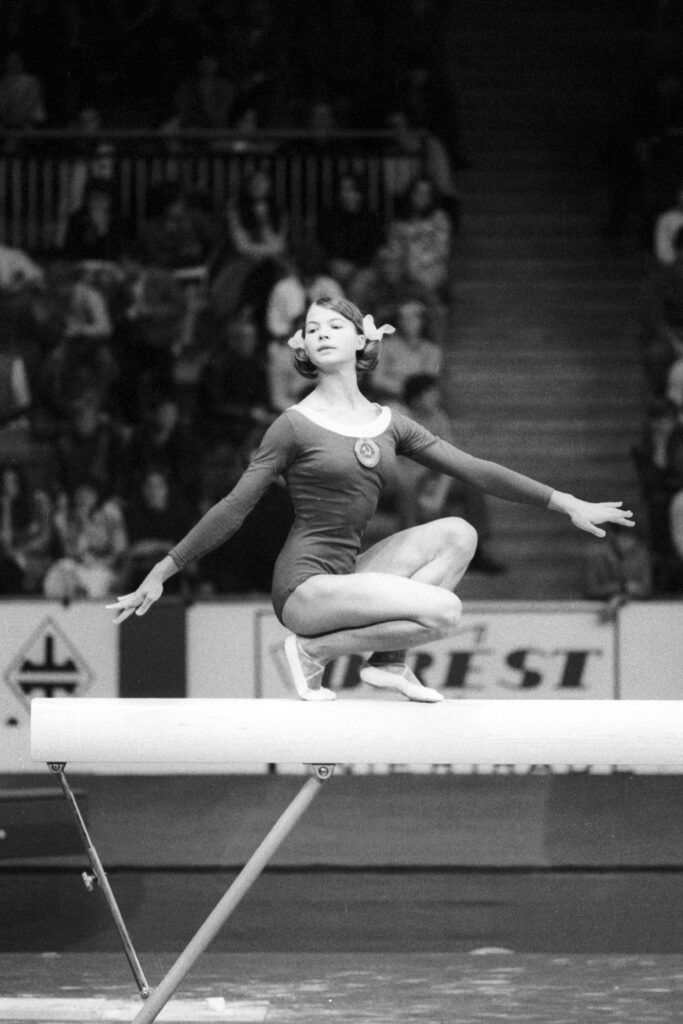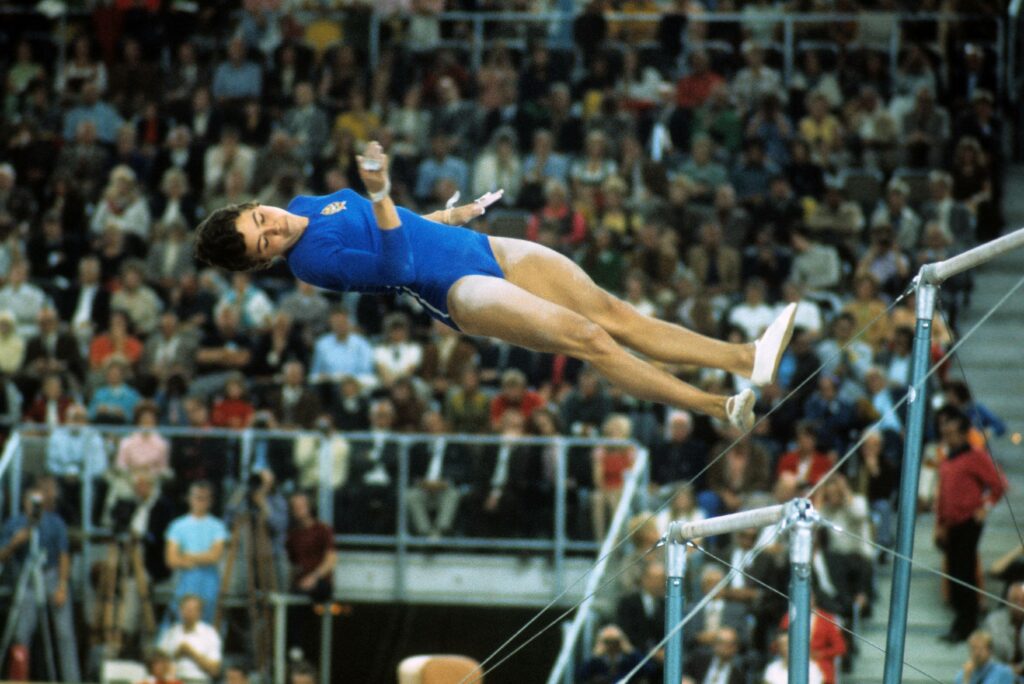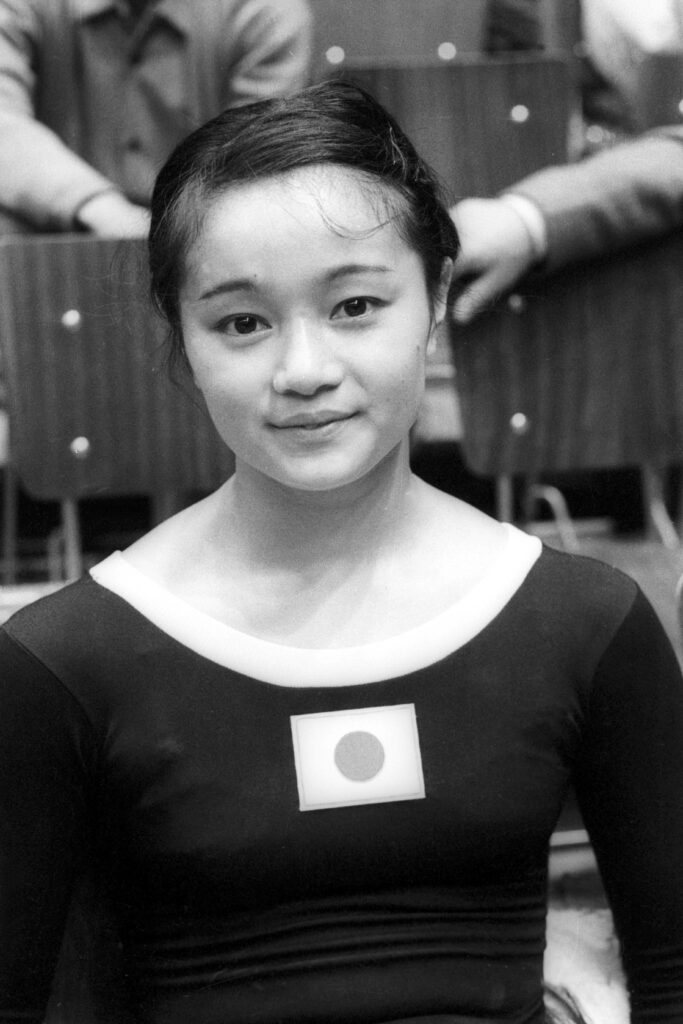In 1972, Věra Čáslavská published her autobiography, The Road to Olympus (Cesta na Olymp). It provides a detailed recounting of her early days through the 1968 Olympics in Mexico City.
As a child, Čáslavská was a mischievous and funny child. Though a performer at heart, she struggled with stage fright until her mother helped her work through it, and as an adult, she came to see it as an asset.
Čáslavská started with ballet, then added ice skating, and finally found gymnastics. Initially, she trained under Czechoslovak gymnastics legend Eva Bosáková, and when Bosáková was away with the national team, Čáslavská used to sneak into the gym to train. Given her relationship with Bosáková, Čáslavská found it difficult to beat her mentor.
From the start, the international crowd loved Čáslavská. At the age of 16, during her first World Championships in 1958, Čáslavská wowed the audience in Moscow — so much so that the public demanded a performance by Čáslavská, even though she didn’t make the floor finals.
Below, I’ve translated sections of Čáslavská’s autobiography, tracing her early years in sports through to her first World Championships in Moscow in 1958.
